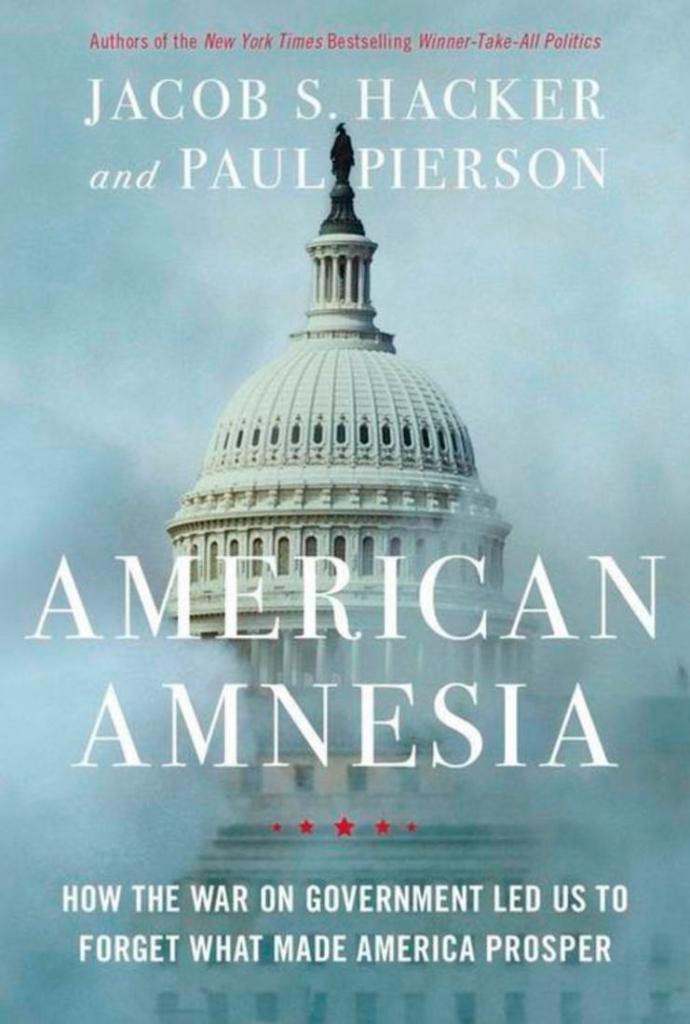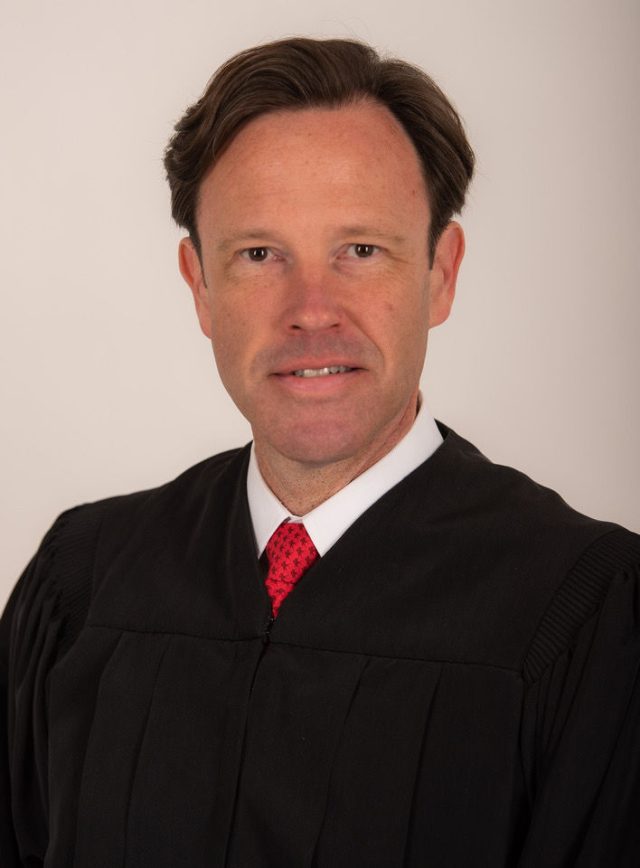‘Amnesia’ realistic and reassuring
Published 12:15 am Sunday, June 5, 2016

- sunread_book_amnesia060516
“American Amnesia: How the War on Government Led Us to Forget What Made America Prosper” by Jacob S. Hacker and Paul Pierson. New York: Simon & Schuster, 2016. 455 pages, $28.
“Like other advanced democratic nations, the United States has what economic analysts call a ‘mixed economy,’ “ Jacob S. Hacker and Paul Pierson explain near the beginning of “American Amnesia: How the War on Government Led Us to Forget What Made America Prosper,” their new treatise on the financial challenges confronting our republic. “In this public-private arrangement, markets play the dominant role in producing and allocating goods and innovating to meet consumer demands. …
“Apple brings us iPhones, and it earns sizable profits by doing so,” they continue. “Visionaries such as Steve Jobs see untapped opportunities to make money by satisfying human wants, and then draw on the knowledge and technology around them to produce goods and services for which people are willing to pay. Markets are the most powerful institutions yet developed to encourage and coordinate decentralized action in response to individual desires.”
During a recent visit to our local Barnes & Noble Booksellers, this book virtually jumped off the shelf in the “new releases” section and into my hands as I strolled through my favorite section of the store. I have always been intrigued by the role economics plays in our lives, and my fascination has only increased as we have experienced the ups and downs of the past decade. Most of the leading explanations for the Great Recession seem inextricably tied to the particular ideological biases of those putting forth the interpretations, and “American Amnesia” is no exception to this general rule. What sets this latest effort apart from many of its contemporaries, however, is the balanced nature of how the argument is articulated.
Hacker and Pierson are known for their defense of government’s role in the unprecedented prosperity this nation has enjoyed since its founding almost 250 years ago. Indeed, they have spent much of their careers – individually as well as collectively – attempting to underscore the undeniable role our form of governance has had on creating and sustaining wealth. Over and over again, they make the inherently compelling case that regulation and oversight are not the sworn enemies of free enterprise and capitalism; rather, they are both necessary and complementary components for persistent economic growth.
“American Amnesia” is extensively researched with 60 pages of source notes at the conclusion of the introduction, 10 chapters and conclusion that comprise the main text. I found the fourth chapter, “How America Got Rich,” to be one of the most enlightening. Refuting the oft-repeated characterization of the Founding Fathers as free-market fundamentalists, Hacker and Pierson offer the following list of their true contributions to our country’s heritage: “And here is what they did: They created a stable national currency and central bank; promoted domestic manufacturers; created a national army for external protection and internal expansion; purchased and seized land and laced it with new roads, navigable waterways and systems of communication, including the world’s largest public postal network; guaranteed the expansion of public education by setting aside land to be sold to finance local schooling; expended federal funds again and again to relieve distress from natural disasters and major economic losses; and bound together all these efforts with a national legal system that would eventually give birth to the modern corporation.”
Hacker is the Stanley B. Resor Professor of Political Science and director of the Institution for Social and Policy Studies at Yale University. His previous books include “The Great Risk Shift: The New Economic Insecurity and the Decline of the American Dream” and “The Divided Welfare State: The Battle over Public and Private Social Benefits in the United States.”
Pierson is the John Gross Professor of Political Science at the University of California at Berkeley. His previous books include “Politics in Time: History, Institutions and Social Analysis” and “Dismantling the Welfare State? Reagan, Thatcher and the Politics of Retrenchment.”
The present volume is actually the third collaboration between these two prolific scholars. The others are “Off Center: The Republican Revolution and the Erosion of American Democracy” and “Winner-Take-All Politics: How Washington Made the Rich Richer – And Turned Its Back on the Middle Class.”
Ultimately, “American Amnesia” represents a rigorous and good-faith attempt to set the record straight by calling into question the mythology used by both sides of the political spectrum to further their own interests. Hacker and Pierson assert that those who cast the government as the root cause of most of society’s ills are undermining the very forces that gave rise to our success. They do this by advocating a system that benefits some while punishing others, and the result is an intense polarization that strikes at the heart of who we are as a people.
“American government does have a big problem: It’s increasingly incapable of doing what it needs to do to ensure a prosperous and safe society,” the authors conclude in “A Crisis of Authority,” the final chapter. “Across nearly every area of domestic government – managing the nation’s finances, regulating the market, protecting the environment, delivering basic services, investing in the future – we see decay and destruction, stalemate and subversion, efforts not just to reduce government’s capacity but also to undermine the legitimacy of (and hence voluntary compliance with) federal law itself. The tragic irony is that this assault is being waged in the name of a Constitution that was designed with precisely the opposite intent.”
I found “American Amnesia” to be both realistic and reassuring. Hacker and Pierson set out on a quest to bring some much-needed civility, reason and perspective to the ongoing debate about what constitutes the appropriate role of government in the United States. In large measure, they succeed; I recommend this one highly.
— Reviewed by Aaron W. Hughey, Department of Counseling and Student Affairs, Western Kentucky University.






